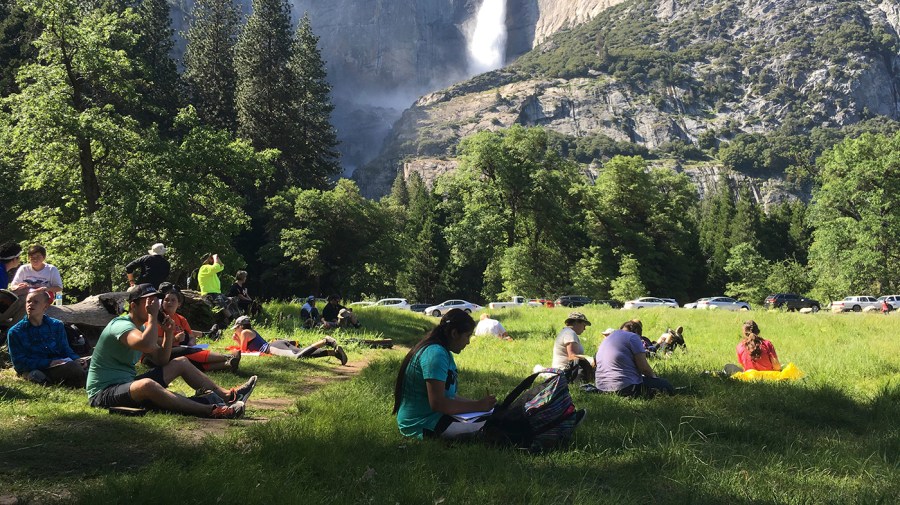
The researchers behind a massive report on the state of nature in America are seeking to release it despite President Trump’s cancellation of the project, one of the report’s authors told The Hill.
Trump canceled the National Nature Assessment, which began its work under the Biden administration, shortly after he took office in January. It would have been due earlier this week.
“The idea was that we don’t have a good national inventory of the state of nature,” Howard Frumkin, a professor emeritus of environmental science at the University of Washington School of Public Health who was lead author on the report’s chapter on the relationship between nature and public health, told The Hill in an interview.
“We know a lot about our economy, we know a lot about our transportation infrastructure and our kids’ academic achievement, but nature is such an important basis for the economy and for health and well-being, for cultural benefits, but we never have had a good inventory of the state of nature across the country, of trends that may be affecting it, positive or negative, where and how it’s delivering benefits,” Frumkin added.
Frumkin called the decision to pull the plug “a little mystifying.”
“This is really not a political or ideological topic. We know that across the country, in red states and blue states and red counties, blue counties, people love the nation’s natural heritage,” he said. He pointed to his experience working at the Trust for Public Land, where he said Americans in Democratic and Republican areas and everything in between regularly voted to issue bonds to protect green space.
The report has nearly 200 authors across 12 chapters covering nature’s intersection with everything from the economy to cultural heritage, and had a target publication date of 2026 before Trump canceled it.
However, Frumkin told The Hill, the authors are currently weighing options for how to publish the final report in another form.
“[W]e’ll find the appropriate publisher and publication venue, and I have every expectation that we’ll carry on with the work and deliver a rigorous, useful report,” he said. The publication date will likely be sooner than originally planned, he added, because removing the report from beneath the umbrella of the federal government will mean fewer layers of review are required.
In the meantime, Frumkin shared an overview of some of his section’s key findings with The Hill, including that exposure to nature is associated with broad improvements to health and well-being. The benefits, he said, range from stress reduction to heavier physical activity, lower blood pressure and improved birth outcomes.
However, Frumkin and his team also found current trends that could affect the extent to which people experience those benefits. The combination of climate change and development means the increasing loss of biodiversity and nature and, potentially, some of the health benefits associated with them, he said. Other findings indicate trends in the opposite direction, though— for example, New England is more heavily forested now than it was a century ago.
Other trends the team found, he said, “don’t have to do with nature as they have to do with human behavioral patterns and preferences.”
“So we spend less time outdoors than our great-grandparents did. We have more screen time. There’s less of a psychological connection to nature, which we know is one of the mechanisms through which nature delivers benefits,” he added.
The third major finding, Frumkin said, was that governmental policies can help realize those benefits in the larger population.
“Nature can’t deliver health benefits if we’re losing it. So policies that protect natural spaces, sea coasts, forests, grasslands, wetlands, can be policies that indirectly help benefit health as well,” he said.
Ultimately, Frumkin said, “if we need to pivot and issue it as a non-governmental report, I think that’s just fine.”
“I think there may be an opportunity in terms of how nimble and flexible and far-reaching the report can be,” he said. “So it’s regrettable that it won’t be the government document, but it would have been, but I think that the benefits of this report can still be made available to the American public.”












